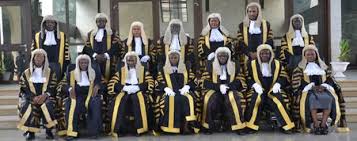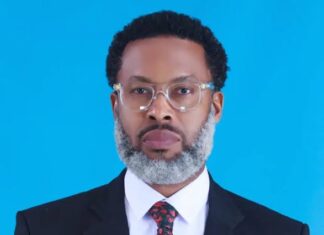By Onyewuchi Ojinnaka
Sixty years after independence, the Nigerian judiciary which is the third arm of government, has operated under various civilian and military administrations.
In the last five years, it has functioned under the All Progressive Congress (APC)-led government of President Muhammadu Buhari.
At the inception of the administration in 2015, the judiciary was left at the mercy of the Executive, from which it received different attacks.
In some instances, judicial officers suffered humiliation in the hands of the executive. Some judges were harassed, embarrassed, their chambers and residences ransacked. They were detained and prosecuted by the government through the office of Attorney-General of Federation (AGF)/Economic and Financial Crimes Commission (EFCC).
There were also cases of disobedience to court orders and flagrant abuse of judicial system. Somehow, the judiciary did not help its case with incidences of conflicting judgements by courts of the same jurisdiction, delays in justice delivery and infrastructure decay/deficiency.
Lawyers who spoke to our correspondent on the issues, gave reasons for the developments. Former publicity secretary of Nigeria Bar Association (NBA), Lagos branch and currently Chairman Police Duty Solicitors Scheme Sub-Committee, Emeka Nwadioke, took a look at administration of justice and described it as a mixed bag of fortunes. He said, “It has been mixed fortunes for the judiciary in the last 60 years. It must however be said that the judiciary has been a stabilizing force for the fragile polity. The fate of the nation could have been better imagined without the judiciary. Poor funding remains a major handicap to the effectiveness of the judiciary”.
Commenting on quick/delay in the administration of criminal justice, Nwadioke who was former member of NBA Criminal Justice Reform Committee (NBA-CJRC) at the national level said: “Delay in justice delivery is deeply troubling. There is no gainsaying that justice delayed is justice denied. It is also trite that most of our judges simply cannot cope with the overbearing surfeit of cases. While technology and more creative case management systems need to be deployed to fast-track justice delivery, all stakeholders – especially lawyers – must eschew practices that aggravate delay.
He described disobedience/obedience to court pronouncements by government and/or its agencies, as a major challenge to the judiciary.
In his words, “This is the Achilles Heels of the judiciary. The spectre of disobedience of court orders has brought odium to the justice sector, eroding the standing of the judiciary in the eyes of the public. It also makes a mockery of our country in the comity of nations and imperils our quest for foreign direct investment, as investors prefer economies with stellar law and order regimes.
Nwadioke observed that corruption has remained intractable in Nigeria, with the judiciary not spared of the menace. “There is nothing as dishonourable and dangerous as a corrupt judge or judicial officer. As the saying goes, it takes two to tango. There must be increased political will and more commitment to contain this menace”, he said.
Many judges and lawyers, he argued, exhibit traits that restore fate in the justice system, adding however that such cannot be said for all judges, lawyers and the government. He called for attitudinal change among key justice sector stakeholders.
Nwadioke recommended increased funding of the judiciary through improved budgetary allocation. “The judiciary must mainstream technology in all its operations in order to drive efficiency. Judges should be fair but firm in their case management practices. Government must eschew disobedience of court orders while lawyers must desist from practices that impede justice delivery”, he said.
A Senior Advocate of Nigeria, and human rights lawyer, Chief Mike Ozekhome, on his part, expressed sadness over the great level of decadence in the structures, institutions, economy, jurisprudence and governance in Nigeria.
He said: “We have since birthed, nurtured and enthroned a dangerous regime of impunity, government’s wanton breach of citizens’ fundamental rights, reckless disregard to court orders, and brazen desecration of the rule of law. We have glamouralised moral decadence, primitive acquisition and a rentier economy”.
Abuja based lawyer, Chima H. Ebere, stressed that the judiciary under the Buhari administration, has been weakened in its effectiveness to deliver justice. He noted that the posture of this administration upon assumption of office was that of the defender of justice, but with time, it refused and neglected to walk the talk, adding that examples abound in several high profile cases.
Ebere observed that the level of disdain to which the government has on the judiciary, was manifested in the speech delivered by the President before the Nigerian Bar Association two years ago where he subsumed his national security under his ‘subjective’ personal whims and caprice.
“I must not fail to highlight that bashing, intimidation and outright harassment of our learned judges by this administration using their gustapo ‘DSS’ invading and arresting the Supreme Court justices in the wee hours of the morning. To crown it all, the administration removed the then presiding CJN Walter Onnoghen in broad day light without any qualms”, he lamented.















